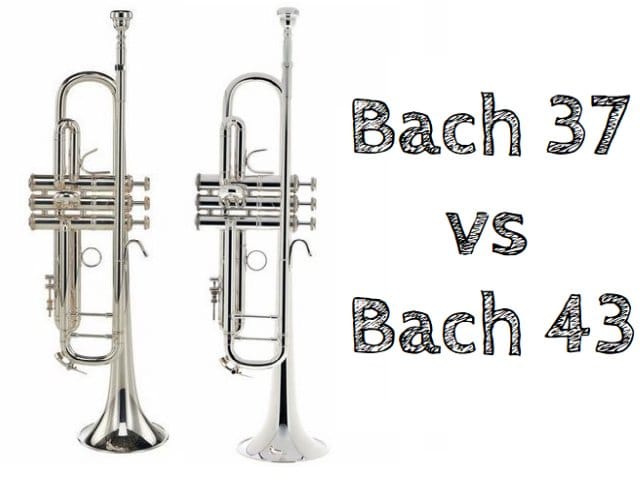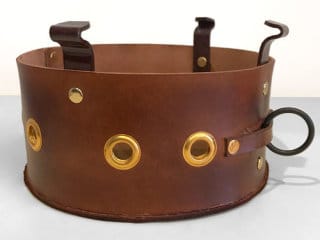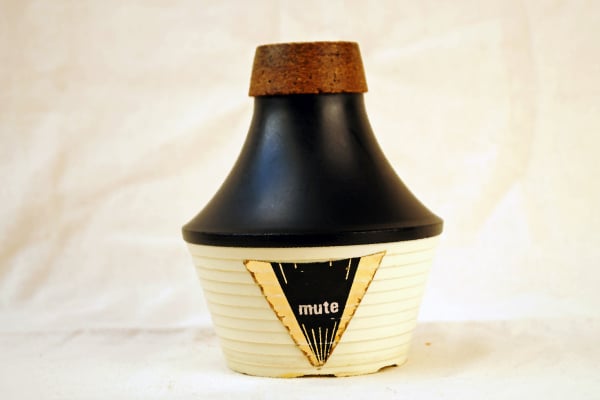If an instrument is not protected with a suitable material, it tends to lose its shine over time. Trumpets are no different, especially since they are usually made of brass or silver. When these instruments are exposed to air for an extended period, the outer coating begins to tarnish. Over time, this makes them look old and unappealing.
You probably don’t want that to happen to your beautiful trumpet. What can you do, though, to safeguard your instrument from the same fate?
How To Polish A Brass Instrument
If you’re planning to clean tarnished brass, silver or lacquered instruments, all you typically need is:
- Microfiber Cloth*
- Lacquer Polish* (for lacquer instruments) or Tarnish Shield* (for silver-plated instruments)
Alternatively:
Careful!
If your trumpet is lacquered, make sure NOT to use a metal polish for silver, brass or copper, or else you might cause permanent damage to it.
For a lacquered instrument, you could even forego the lacquer polish and just use the microfiber cloth and some elbow grease. If you do use lacquer polish, use it sparingly lest you damage the finish.
If you get a polishing cloth for lacquer, silver, or brass, use that sparingly, too. Usually a microfiber cloth is all you need, but the occasional deeper clean with a proper polishing cloth can keep your instrument shiny.
If you want to give your trumpet a proper clean besides a polish of the lacquer, see our complete guide on how to clean a trumpet.
Are Silver Trumpets Better Than Brass or Lacquered Trumpets?
No. It’s often said that silver-plated trumpets have a brighter, cleaner sound and brass or lacquered trumpets sound darker, but this has been disproven in experiments.
Having said that, there are other differences apart from the sound, such as the maintenance required to keep your trumpet clean. Silver trumpets will tarnish over time, similar to silver tableware. You need to polish them (see above) to keep them looking nice.
The same is true for raw brass trumpets as well – compared to lacquered trumpets, they are higher maitenance as they will tarnish over time.
Looking for a teacher?
Want to get lessons at the comfort of your own home? Check out the course Learn to Play the Trumpet: Beginner to Pro Made the Easy Way* on Udemy! (See their full trumpet course line-up here*!)
What is red rot on brass?
Red rot is a reddish to pinkish discoloration on brass instruments, often starting on the leadpipe. (See an image here.) It is caued by the destruction of zinc which leaves the underlying copper shining through. As hornmatters.com explains:
Red rot is found in brasses, which are alloys of copper and other non-ferrous metals, such as zinc. As the alloyed metal, most often zinc, is corroded out of the brass, a lattice-work of copper is left which is reddish in appearance.
hornmatters.com
If your trumpet is impacted by red rot, the rot will usually start from the inside and slowly manifest as black spots on the outside of your instrument. You will also notice small craters forming.
Did you know?
Red rot is caused by your saliva, which is slightly acidic and corrodes the zinc in the trumpet’s alloy over time. To prevent red rot, brush your teeth before playing the trumpet.
What Can You Do Against Red Rot And How Do You Prevent It?
You can’t do anything against red rot once it appears, except exchange the leadpipe for a new one (if the red rot manifests on your leadpipe). Replacing a trumpet leadpipe will cost about $150 to $250.
Since red rot is a chemical process – “dezincification” – polishing won’t help as it won’t restore the zinc. What you can do, however, is to prevent futher red rot from appearing.
Don’t panic!
It’s worth noting that the appearance of red rot won’t immediately make your trumpet unusable. Even with light red rot, you can still get many years of play out of your instrument.
In order to slow the advance of red rot on your trumpet, you can do the following:
- Keep your leadpipe dry
- Coat your leadpipe with valve oil after playing
- Brush your teeth and rinse your mouth before playing
1. Keeping your leadpipe dry
To keep your leadpipe dry, you can get a leadpipe swab* and use this after playing.
2. Coating Your Leadpipe With Valve Oil
If you coat your leadpipe with valve oil after playing, you can prevent further oxidization and destruction of the zinc. Any valve oil will do, like Music Nomad* or Blue Juice*.
3. Brushing Your Teeth Before Playing The Violin
The idea behind doing this is to keep your saliva as little acidic as possible. If you rinse your mouth or brush your teeth before playing, you might successfully reduce the acid in your mouth and prevent red rot.
Can you play a raw brass trumpet?
You can absolutely play a raw brass trumpet. Playing a raw brass trumpet is mostly an aesthetic choice. It is very unlikely you will hear any change in sound to a “normal” lacquered or silver-plated trumpet.
Raw brass has the downside that it will not look very shiny for long. It will develop a patina that will make it look dull and old. If you like that kind of look, a brass trumpet should work well for you.
How Do You Remove Lacquer From Brass Instruments?
To remove the lacquer from your brass horn, get some Aircraft Remover* or other paint stripper. Take all the removable parts off the trumpet and spray the Aircraft Remover on your instrument. Let it sit for half an hour.
After that, sponge it off with a brush or sponge in a big tub and get all the lacquer right off. Afterwards, your trumpet’s raw brass will be exposed and will tarnish fairly quickly unless you re-lacquer.
How do you care for a raw brass trumpet?
If you want your raw brass trumpet to get a brownish, dull patina on it, you don’t need to do much. The patina protects your horn from further oxidation.
Make sure you keep it dry – always wipe it down after each use. As discussed before, playing a raw brass trumpet is first and foremost an aesthetic choice.
If you want to keep your raw brass shiny, use copper cleaning cream* or Brasso* to polish it. One user over at trumpetherald.com suggests using Skin So Soft* to give your horn a light coating. I haven’t tried this myself, but they’re reporting good success – and an instrument that smells good!
Can you re-lacquer a trumpet?
You can relacquer a trumpet, but it’s best to leave this up to a professional. It’s similar to repainting your car, which a professional can do much more quickly and evenly than you could.
How much does it cost to re-lacquer a trumpet? It will easily set you back $250 or more, depending on if you want them to strip off the original lacquer.
Can you spray paint a brass instrument?
You can spray-paint a brass horn if you like to, and it will likely have little effect on the sound. However, it will likely reduce the resale value significantly, so you might want to make sure it’s really worth it to you before you go ahead.
TrumpetHub.com is a participant of the Amazon Services LLC Associates Program, an affiliate advertising program. Links marked with an asterisk (*) are affiliate links. If you buy a product through an affiliate link, we will get a small commission without extra cost to you. This helps us earn an income off the free content we provide to you. Thank you for your support!



